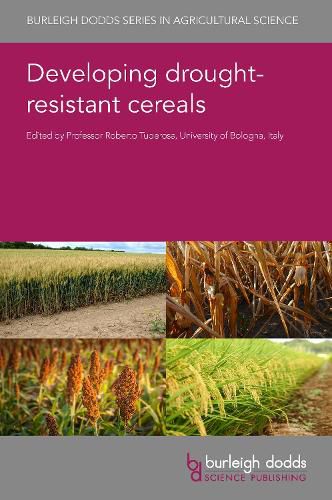Readings Newsletter
Become a Readings Member to make your shopping experience even easier.
Sign in or sign up for free!
You’re not far away from qualifying for FREE standard shipping within Australia
You’ve qualified for FREE standard shipping within Australia
The cart is loading…






Drought remains the biggest single threat from climate change to the production of key cereal crops, such as wheat and barley. Cereals also respond in complex ways to drought stress, making improved drought tolerance a challenging trait to achieve. With many cereals recognised as staple food crops due to their nutritional value, more research is required into improving drought tolerance as a means of ensuring the future food security of millions.
Developing drought-resistant cereals reviews the wealth of research which addresses how to overcome this challenge in order to mitigate climate change effects in cereal production. This collection details our understanding of the mechanisms of drought tolerance, as well as the development of techniques for improving resistance, including phenotyping, genome-wide association studies (GWAS) and genome editing.
$9.00 standard shipping within Australia
FREE standard shipping within Australia for orders over $100.00
Express & International shipping calculated at checkout
Drought remains the biggest single threat from climate change to the production of key cereal crops, such as wheat and barley. Cereals also respond in complex ways to drought stress, making improved drought tolerance a challenging trait to achieve. With many cereals recognised as staple food crops due to their nutritional value, more research is required into improving drought tolerance as a means of ensuring the future food security of millions.
Developing drought-resistant cereals reviews the wealth of research which addresses how to overcome this challenge in order to mitigate climate change effects in cereal production. This collection details our understanding of the mechanisms of drought tolerance, as well as the development of techniques for improving resistance, including phenotyping, genome-wide association studies (GWAS) and genome editing.